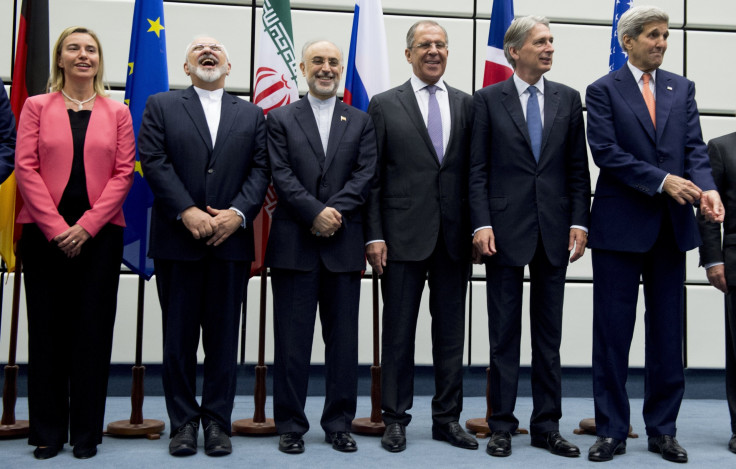Iran Deal Reaction: World Leaders Praise Agreement As Triumph Of Diplomacy

United Nations Secretary-General Ban Ki-moon hailed the Iran deal announced Tuesday as a victory for diplomacy. "I hope – and indeed believe – that this agreement will lead to greater mutual understanding and cooperation on the many serious security challenges in the Middle East," he said in a written statement.
Iranian President Hassan Rouhani said the accord would open “new horizons,” AFP reported, and Foreign Minister Mohammad Javad Zarif referred to the deal as a “win-win” situation. "I believe this is a historic moment. We are reaching an agreement that is not perfect for everybody, but it is what we could accomplish and it is an important achievement for all of us," said Zarif, according to Al Jazeera.
Other world leaders expressed optimism about the agreement and said they feel confident Iran will be prevented from building nuclear weapons. The agreement, if carried out, will end a standoff of more than decade between Iran and Western countries over Iran’s nuclear program. World powers accused Iran of trying to build nuclear weapons, although Iran consistently maintained its program was for peaceful purposes. As part of the deal, Iran will cut its centrifuges from about 19,000 to 6,104, Al Jazeera reported.
The steadfastness, resistance, patience, perseverance & support of the great nation of #Iran were indeed key to this victory. #IranDeal
— Hassan Rouhani (@HassanRouhani) July 14, 2015As part of the deal, Iran's nuclear program will have to remain peaceful, and in exchange, U.N. sanctions that have crippled the country's economy in recent years will be lifted, EU foreign policy chief Federica Mogherini announced Tuesday. Mogherini said negotiators feel confident that the deal was a good one, though it will undoubtedly be the subject of scrutiny.
#IranTalks done. We have the agreement. #IranDeal
— Federica Mogherini (@FedericaMog) July 14, 2015Israeli Prime Minister Benjamin Netanyahu, long the most vociferous opponent of any accord, opened a Persian-language Twitter account Monday as a last-minute protest. On Tuesday, he called the decision “a historic mistake for the world,” saying it would ultimately work to advance Iran’s “terror machine.”
U.S. Secretary of State John Kerry called the agreement a "good deal" and said it was a step toward peace. President Barack Obama said the deal "is not built on trust, it is built on verification," the Associated Press reported.
Agreement is a step away from specter of conflict, towards possibility of peace. This is the good deal we have sought pic.twitter.com/JY9YSZrPQs
— John Kerry (@JohnKerry) July 14, 2015© Copyright IBTimes 2025. All rights reserved.






















